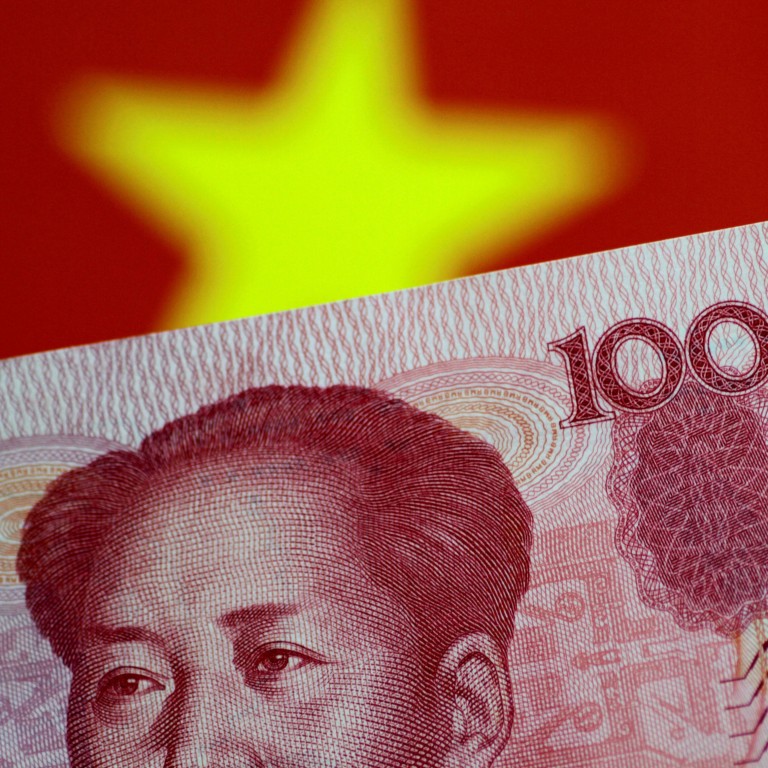
Chinese sovereign bonds’ inclusion in FTSE Russell index will give foreign investors another avenue to access debt market
- The odds of Chinese government bonds’ inclusion into FTSE Russell’s benchmarks at 90 per cent, says Morgan Stanley
- Inclusion is likely to spur inflows of as much as US$90 billion from September 2021
FTSE Russell will announce whether it will add the nation’s sovereign debt into its indexes after US markets close on Thursday, a year after rejecting the notes. Morgan Stanley puts the odds of inclusion this time round at 90 per cent.
With yields near zero for most developed nation bonds, the 3.1 per cent offered by China’s benchmark 10-year bond has been pulling in investors from Singapore to the UK. Inflows into the nation’s debt market from overseas investors jumped nearly 40 per cent a year since 2017 to a record US$383 billion by the end of June, central bank data as of the end of June showed. That is yet to have much impact on the bonds given foreigners account for less than 3 per cent of the US$16 trillion market.
According to Morgan Stanley, inclusion by FTSE Russell is likely to spur inflows of as much as US$90 billion from September 2021. FTSE Russell is the last of the three main index compilers to consider adding Chinese debt after Bloomberg Barclays and JPMorgan Chase. Bloomberg LP owns Bloomberg Barclays and Bloomberg News.
Last time around, FTSE Russell cited the need for greater secondary market liquidity, as well as increased flexibility in foreign exchange execution and the settlement of transactions to meet inclusion criteria. In April the index compiler acknowledged that China had addressed calls to increase market accessibility and provided investors with greater currency trading options and improvements to liquidity.
“All of this additional flexibility and feasibility of hedging are making offshore investors more comfortable about entering into the onshore bond market for capital investment,” said George Sun, head of global markets for Greater China at BNP Paribas China.
Despite inflows from foreign investors, Chinese bonds are poised to fall for a fifth straight month in September, making them the worst performer in the Asia-Pacific region. The notes have been under pressure amid concern about tighter liquidity, a cautious central bank that has refrained from cutting interest rates and growing appetite for riskier assets as an economic recovery gathers pace.
As a result, China’s 10-year government note offers a yield premium of about 240 basis points over US peers, near a record high. That could help attract “persistent and large” fund inflows, Citigroup said in a note this week.
“China’s bond market internationalisation is happening regardless of FTSE Russell inclusion which is but an endorsement of a structural shift well under way,” said Wilfred Wee, a portfolio manager at Ninety One Singapore.

